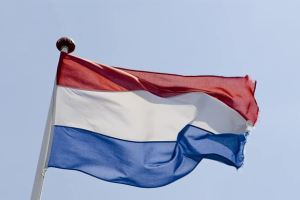Dutch online retailers unite to form labor agreement

As of this week, Dutch online retailers have formed an employer’s organization called E-commerce Netherlands. The organization is supposed to strengthen the branch, which is growing quickly. It will also bring Dutch ecommerce closer to forming a collective labor agreement.
Dutch ecommerce worth €55 billion in 2025
Ecommerce in the Netherlands is booming, in 2020 it was worth 26.6 billion euros. It is estimated to be worth 55 billion euros in 2025, which means that at that point there will be ten thousands of employees working within the sector.
‘We want to anchor the image of an innovative, attractive sector.’
The newly founded employer’s organization will be a voice for affiliated companies towards policy makers. “We want to anchor the image of an innovative, attractive sector”, says Daan Hermes, who is chairman of E-commerce Netherlands. “By working together we can make the ecommerce sector even stronger and create more jobs for the future. We will promote good social policy and agree on collective terms of employment for ecommerce companies.”
For pure online players
Only pure online players can become members of the organization. At least 80 percent of their turnover has to come from direct or indirect business activities in the field of ecommerce. Additionally, these companies need to have at least 100 employees.
Formed by multiple online retailers
There’s been an interest for collective terms of employment for ecommerce companies within the Netherlands for a while now. Michiel Muller, co-founder of Dutch online supermarket Picnic said: “online giants such as Amazon and JD.com are entering an unregulated market here and will compete on things such as self-employment structures and low wages.”
‘Online giants compete on things such as low wages.’
Picnic and branch organization InRetail were negotiating with other online companies about forming the employer’s organization. Dutch online retailer Wehkamp has expressed that it will join, while Bol.com seems hesitant in using a labor agreement.
Labor agreement for fair competition
Establishing collective terms of employment for ecommerce companies will ensure that ecommerce players from other countries entering the Dutch market will have to abide by these rules. Picnic has recently created its own labor agreement, which will now also be accessible to other companies that join the E-commerce Netherlands organization.
“It still concerns a handful of companies. A collective labor agreement is only generally binding if sixty percent of the market has joined,” said Marlene ten Ham, director of Thuiswinkel.org. Once more ecommerce companies join the organization, they can start negotiations with unions.

Comments